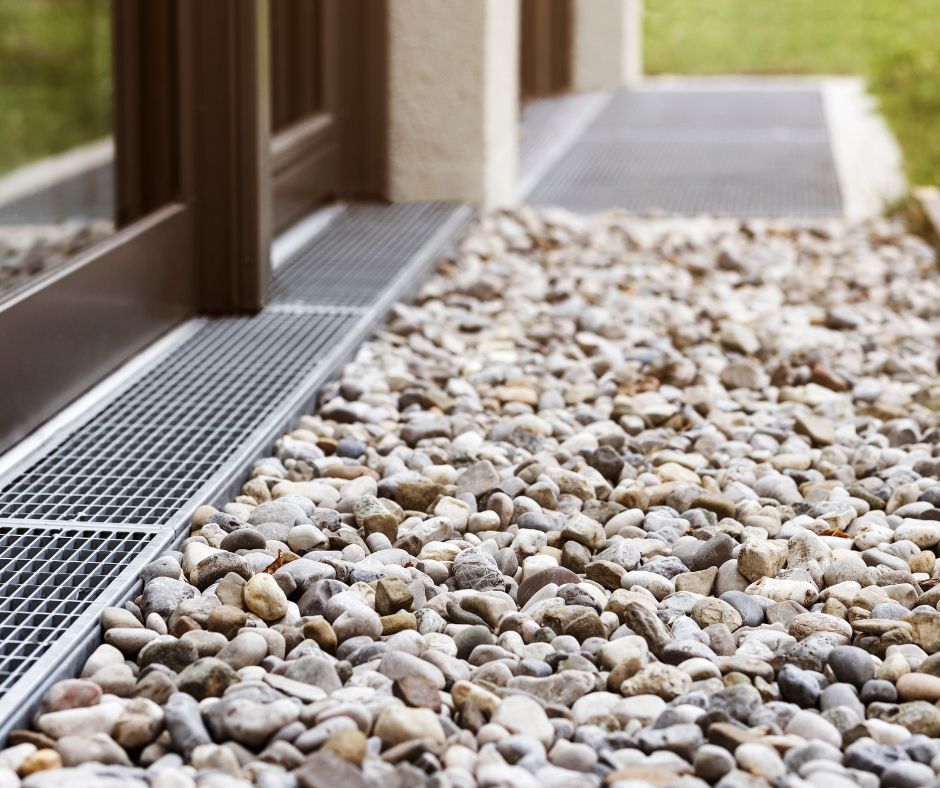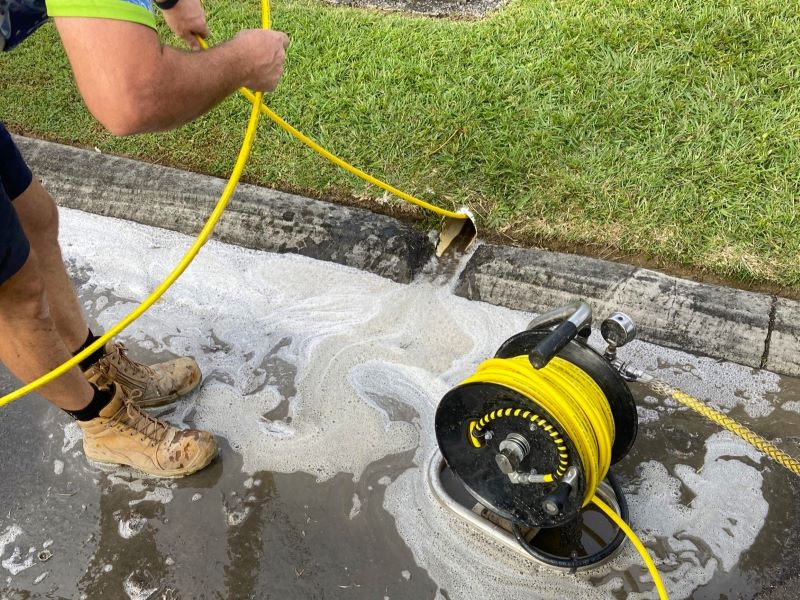Stormwater drainage systems are essential infrastructures that encompass various components, including roof plumbing drainage, French drains, spoon drains, and strip drains. These systems are crucial in preventing water damage to your property and managing stormwater runoff efficiently. Regular maintenance is vital; failure to do so can lead to severe consequences, such as drain blockages and flooding, which can be detrimental to your home’s foundation. Whether you’re facing clogged drains, invasive roots obstructing your pipes, or damaged plumbing, proactive maintenance is key to minimizing the risk of costly repairs. Understanding the necessary steps for maintaining these systems is fundamental for safeguarding your home against water-related issues.
This comprehensive guide offers detailed insights into maintaining your drainage systems efficiently and provides actionable steps to take when confronted with a blockage.

Effective Maintenance Techniques for Traditional Stormwater Drainage Systems
Traditional stormwater drains are crucial for most properties, designed to divert rainwater away from structures and prevent flooding. However, over time, these systems can become clogged with debris such as leaves, dirt, and branches, significantly impairing their functionality. It is essential to ensure that water flows freely to avoid accumulation near your home's foundation, as this can lead to substantial structural issues. By establishing a routine maintenance schedule, you can prolong the lifespan of your drainage systems and enhance their efficiency, especially during heavy rain periods when they are most needed.
Essential Tips for Caring for Traditional Drains:
- Regularly clear the grates and gutters: To prevent obstructions in water flow, routinely remove accumulated leaves and debris, particularly after storms when buildup is most likely to occur.
- Monitor for pooling water: Keep an eye out for signs of water backing up or pooling near your drains, as these can indicate blockages. Additionally, check for soggy areas in your garden, which might signal underlying drainage issues that require attention.
- Engage professional services: Schedule routine inspections and cleanings with a qualified plumber, such as Creek to Coast, to ensure optimal drain performance and to avoid future complications.
Best Practices for Ensuring the Longevity of French Drain Systems
French drains are specifically designed to redirect groundwater away from your home and retaining walls, making them invaluable for effective moisture management. However, these underground drainage systems require ongoing care to prevent blockages that can disrupt their function. Composed of gravel and a perforated pipe, French drains are efficient for water diversion, but they can become clogged with dirt, sediment, and invasive roots over time. Proper maintenance is essential to ensure their longevity and operational efficiency, effectively preventing issues that could lead to expensive repairs.
Key Maintenance Tips for French Drains:
- Watch for slow drainage: If you notice that water isn’t draining as it should, this might indicate a clog requiring immediate attention to prevent further complications.
- Regularly flush the system: Periodically flushing with water can help dislodge potential blockages before they escalate into severe drainage problems.
- Seek professional cleaning services: If you detect sediment buildup or root intrusion, it’s advisable to contact Creek to Coast for thorough cleaning, potentially using hydro-jetting tools to effectively clear the pipes.
Essential Maintenance Practices for Spoon Drain Systems
Spoon drains feature shallow, curved channels specifically designed to guide surface water away from driveways, patios, and other paved areas effectively. While they generally require minimal maintenance, it is crucial to regularly inspect and tend to them to prevent clogging. Neglecting to clear these channels can result in water pooling on your property, leading to potential damage over time. By adopting straightforward maintenance habits, you can ensure that your spoon drains remain functional and capable of managing water efficiently.
Maintenance Guidelines for Spoon Drains:
- Keep the channel debris-free: Regularly sweeping out leaves, dirt, and other materials will help maintain unobstructed water flow. A high-pressure washer can be particularly effective for thorough cleaning.
- Check the slope: Ensure that the slope of the spoon drain is intact, as gravity is essential for directing water away effectively.
- Inspect for damage: Regularly check the drain for cracks or breaks, as these can be compromised by vehicle traffic and may require timely repair.
- Seek professional evaluation: If you observe signs of poor drainage, it may be beneficial to call Creek to Coast for a professional assessment to make necessary adjustments or repairs.
Vital Maintenance Steps for Linear Drain Systems
Linear drains, also known as trench drains, are strategically placed in areas like driveways and pool decks to capture surface runoff efficiently. While they effectively prevent water accumulation, they are prone to collecting debris over time, necessitating regular cleaning to maintain their effectiveness. Establishing a consistent cleaning routine is crucial to prevent blockages that can lead to water pooling and subsequent damage in surrounding areas, ensuring their optimal performance and longevity.
Maintenance Tips for Linear Drains:
- Frequently clean the grates: Regularly monitor the grates for any dirt, leaves, or debris buildup that could obstruct flow, and remove these blockages as necessary.
- Regularly flush the system: Running water through the drain routinely will help ensure that it functions correctly and that no blockages are present.
- Consider professional maintenance: If you experience backups or slow drainage, don’t hesitate to contact Creek to Coast for expert cleaning services to effectively remove deep clogs and debris.
Immediate Actions to Take When Encountering Blocked Drains
Even with diligent maintenance, blockages can still occur in any drainage system. Indications such as water pooling, slow drainage, or overflowing grates signal that immediate action is necessary to prevent more severe complications. By understanding the common causes of blockages, you can identify the issue and take appropriate measures to resolve it effectively.
Common Causes of Blockages Include:
- Tree roots: Roots can infiltrate underground pipes, creating significant blockages that disrupt water flow and drainage.
- Accumulated debris: Leaves, dirt, and other environmental materials can gather over time, obstructing water passage through your drainage system.
- Pipe damage: Broken or crushed pipes can severely restrict water flow, necessitating immediate professional intervention to restore functionality.
When faced with a blockage, it is advisable to consult a professional plumber like Creek to Coast. They utilize advanced tools, including high-pressure water jetters and CCTV cameras, to accurately diagnose and resolve the issue. Attempting to clear a blockage independently can worsen the problem, especially if the pipes are damaged or roots have infiltrated the system.

Comprehensive Strategies for the Maintenance of All Stormwater Drain Systems
To ensure your stormwater management systems—whether traditional, French, spoon, or linear drains—continue to function effectively, consider implementing the following comprehensive maintenance strategies:
- Schedule annual inspections and cleanings with a licensed plumber like Creek to Coast. This proactive approach helps in removing debris and identifying potential problems before they escalate into major issues that could compromise your drainage systems.
- Monitor water flow: After heavy rainfall, inspect your drains for pooling or slow drainage, which could indicate underlying issues that need addressing to maintain optimal performance.
- Install gutter guards and grates to prevent larger debris from entering your drains, thereby reducing the frequency of blockages and the need for extensive maintenance.
- Maintain distance from plants and trees: Roots from nearby trees can invade and obstruct pipes, making it essential to keep vegetation at a safe distance from your stormwater systems to prevent damage.
Regular plumbing maintenance and prompt responses to drainage issues are critical for protecting your property from water damage and ensuring your drainage systems operate smoothly and efficiently. If you notice any signs of blockage, do not hesitate to reach out to Creek to Coast for expert assistance in keeping your stormwater drains functioning seamlessly!
The Article: Stormwater Clarity: Essential Drain Maintenance Tips first appeared on https://writebuff.com.
The Article Drain Maintenance Tips for Stormwater Clarity Was Found On https://limitsofstrategy.com


I appreciate how you highlighted the importance of regular maintenance for stormwater drainage systems. It’s interesting how something so vital can often be overlooked until there’s a problem, like a sudden downpour flooding the backyard. I remember when my neighbor had a major issue due to a clogged French drain; it turned into a real mess and caused some damage I’m sure he didn’t anticipate.
You make a great point about how easily stormwater drainage systems can slip under the radar until something goes wrong. It’s a bit like our health, isn’t it? We often take our wellbeing for granted until we have a setback that forces us to pay attention. Your neighbor’s experience with a clogged French drain sounds frustrating—those sudden messes can really catch us off guard.
It’s true how easy it is to push maintenance tasks down the to-do list until something goes wrong. Your neighbor’s situation really puts it into perspective. A clogged French drain can turn a little rain into a nightmare before you even know it’s happening. Regular maintenance can feel like just another item on a long list, but it really does pay off in the long run.
It’s fascinating how essential stormwater drainage systems are to maintaining the integrity of our homes. I’ve experienced firsthand the impact of neglecting regular maintenance; a clogged drain led to some serious water damage in my basement last year. It’s a reminder that we often overlook these systems until a problem arises.
It sounds like you’ve had quite the experience with your stormwater drainage system. It’s surprising how easily these systems can slip our minds until they cause chaos in our homes. The aftermath of a clogged drain can be a real wake-up call.
It’s interesting to see how much emphasis you’re placing on the maintenance of stormwater drainage systems. I’ve experienced firsthand the consequences of neglecting this; after a particularly heavy rainfall, our yard turned into a small lake due to a blocked drain. The situation not only caused inconvenience but also led to some significant repair costs.